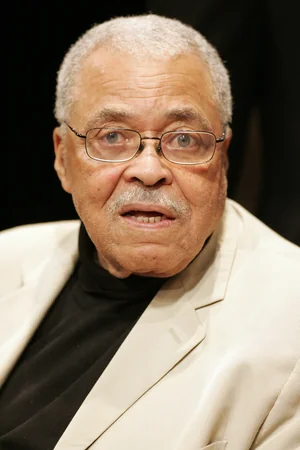“Explore an in-depth analysis of James Earl Jones death, remarkable life and career and his contributions to film and theater in this comprehensive tribute.”
James Earl Jones Death: A Full Tribute to the Late Legendary Icon
James Earl Jones, an icon in the world of acting, has died at 93. His career, extending over a period of more than seven decades, was duly marked by outstanding versatility, and his outstanding baritone voice became his signature in the world of acting. James Earl Jones death closes an era; in fact, his legacy extends further to include the ice he broke and the inspiration that countless numbers drew from him during his celebrated performances.
Biography of James Earl Jones
James Earl Jones was born on January 17, 1931, in Arkabutla, Mississippi, and had to face a lot of difficulties right from his childhood. He developed a terrible stutter that made him a shy and quiet child. His early years were marked by separation from his father, Robert Earl Jones, a boxer turned actor, who left home to seek a career in Chicago.
At the age of five years, Jones was sent to a farm in rural Michigan to stay with his maternal grandparents. It is there that life would change for him. An English high school teacher helped him get rid of the speech impediment by teaching him to sound out each word carefully. It is such a critical intervention that brought up his passion for acting and put him on the path to success.
Jones attended the University of Michigan, where he perfected his acting skills and graduated in 1955. It wasn’t until he relocated to New York City, working as a janitor while studying at the American Theatre Wing, that his career really took off. This led him to make his Broadway debut in the late 1950s in “Sunrise at Campobello,” after which he rapidly gained fame for the dramatic intensity of his performances.
Jones made his screen appearance in Stanley Kubrick’s “Dr. Strangelove or: How I Learned to Stop Worrying and Love the Bomb” in the year 1964. He played a minor character in this film but went on to act in many more films and television serials. He received rave reviews for his presentation of Othello in Shakespeare in the Park. He possessed a strong, commanding voice, which gave life to characters like that with such depth in emotions. The New York Times called him “resonant” and “emotionally credible.”
Jones’s Broadway career took off with roles in “The Blacks” and the 1969 Tony-winning play “The Great White Hope,” in which he played a fictionalized version of Jack Johnson, history’s first black heavyweight champion. This was a ground-breaking role not only in the characterization of a Black figure in the major theatrical performance but also in the breaking of racial barriers within the industry. Jones won a Tony Award for Best Actor in a Play-a first, considering the racial Climate of the time.
This despite the success Jones had on stage found it tough in Hollywood. For most of the 1970s, he was cast in supporting roles, as leads for Black actors were few and far between. His big break came when James won national acclaim as the adult Alex Haley in the 1977 miniseries “Roots.” Indeed, as the deep-voiced Darth Vader in the original “Star Wars” trilogy, James arguably reached his greatest level of cultural penetration. The most memorable performance belonged to Jones as Darth Vader; the deep voice gave real weight and presence to the iconic villain-even though it had been one that requested uncredited work for fear of offending the physical actor, David Prowse.
During the 1980s and 1990s, James Earl Jones continued to build upon an already impressive career with roles in such films as “Conan the Barbarian,” “Field of Dreams,” and “The Hunt for Red October.” He also received great fame with the role of King Jaffe Joffer in “Coming to America,” a role he reprised once more in 2021 in the sequel “Coming 2 America.”
The signature work of his voice continued to be one of the most memorable aspects of his career with the role of Mufasa in Disney’s “The Lion King.”. He later reprised the role in the live-action adaptation of the film and truly cemented his status as a legendary voice actor.
Along with film and television, he continued to be a force on the stage. In 1987 he won a second Tony Award for the role of Troy Maxson in August Wilson’s “Fences”; he continued to win nominations for his work on stage through the next decades. He really devoted himself to acting and his trade, which one could see in his performances; he remained buoyant in the industry even after his diagnosis with Type 2 diabetes in 1995.
Jones was rewarded in his work in the arts with numerous awards: two Emmy Awards, a Grammy, and an honorary Academy Award in 2011. Of course, for all his awards and accolades, he never won an actual Oscar for a particular role-a fact which speaks volumes with regard to how underappreciated he was, relative to his immense talent.
James Earl Jones death buried another of the biggest legends this entertainment world has ever known. The memories of his work as a pioneer, that voice of influence, and strong performances will continue inspiring and ringing in the ears of audiences and actors alike long into the future.
Frequently Asked Questions
1. What are the most famous works by Jones?
Jones is most known for his roles as Darth Vader in the “Star Wars” series, Mufasa in “The Lion King,” and King Jaffe Joffer in “Coming to America.” He also gained renown for his stage performances, including his roles as Othello and Jack Johnson in “The Great White Hope.”
2. Did Jones win an Academy Award?
Jones never received a competitive Academy Award but was honored with an honorary one in 2011 “for his lifetime contributions as an actor.”
3. How did James Earl Jones overcome his stutter?
James Earl Jones had a stutter in his youth, which was helped by a high school English teacher who encouraged him to speak with precision. This support helped him build confidence and advance his acting career.
4. What other awards did Jones receive?
In addition to his honorary Academy Award, Jones received two Tony Awards, two Emmy Awards, and a Grammy for his work in theater, television, and voice recordings.
5. When did James Earl Jones die?
James Earl Jones passed away on September 9, 2024, at the age of 93.




One thought on “James Earl Jones Death: An In-Depth Analysis of His Life”